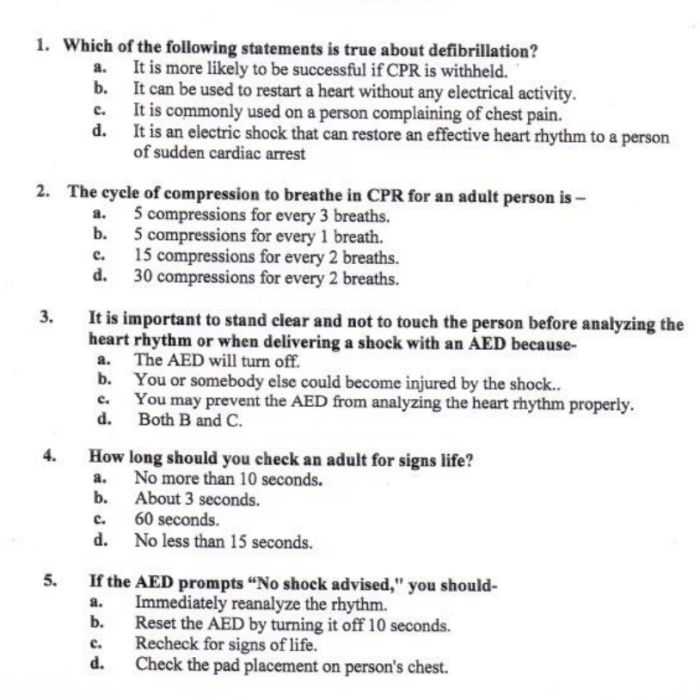Which of the following statements is true of alcoholics? This question delves into the complexities of alcoholism, a condition marked by an unhealthy relationship with alcohol that can have profound physical, mental, and social consequences. As we explore the characteristics, treatment options, and societal impact of alcoholism, we will uncover the truth behind common misconceptions and empower individuals to make informed choices about their health and well-being.
Alcoholism, characterized by compulsive alcohol consumption despite negative consequences, affects millions worldwide. Understanding the factors that contribute to its development, the challenges of recovery, and the role of support systems is crucial for effective prevention and treatment strategies.
Characteristics of Alcoholics: Which Of The Following Statements Is True Of Alcoholics

Alcoholics are individuals who have developed a physical and psychological dependence on alcohol. They exhibit a range of common traits and behaviors associated with their addiction.
Physically, alcoholics often experience liver damage, heart problems, and neurological issues. They may also exhibit malnutrition, weight loss, and fatigue. Mentally, they can suffer from anxiety, depression, and cognitive impairment. Emotionally, alcoholics often struggle with low self-esteem, guilt, and shame.
The development of alcoholism is influenced by a complex interplay of factors, including genetics, personality traits, and environmental stressors. Individuals with a family history of alcoholism are more likely to develop the condition, suggesting a genetic predisposition.
Treatment Options for Alcoholics
Treatment for alcoholism typically involves a combination of medical and psychosocial interventions. Medical treatment may include detoxification, medication to manage withdrawal symptoms, and medications to reduce cravings.
Psychosocial interventions include therapy, support groups, and lifestyle changes. Therapy can help alcoholics understand the underlying causes of their addiction and develop coping mechanisms. Support groups provide a safe and supportive environment where individuals can share their experiences and offer encouragement.
The effectiveness of treatment depends on a variety of factors, including the severity of the addiction, the individual’s motivation to recover, and the availability of support.
Recovery and Relapse Prevention
Recovery from alcoholism is a challenging but rewarding process. It requires a commitment to abstinence, lifestyle changes, and ongoing support. Individuals in recovery may experience cravings, triggers, and other challenges, but with the right support, they can learn to manage these and maintain sobriety.
Relapse prevention is an essential part of recovery. It involves identifying and avoiding triggers, developing coping mechanisms, and building a support network. By following a relapse prevention plan, individuals can significantly reduce their risk of relapse.
Social Impact of Alcoholism, Which of the following statements is true of alcoholics
Alcoholism has a profound impact on families and communities. It can lead to relationship problems, domestic violence, and child abuse. Alcoholics may also experience job loss, homelessness, and financial difficulties.
The economic costs of alcoholism are also substantial. In the United States alone, alcoholism is estimated to cost billions of dollars each year in healthcare expenses, lost productivity, and crime.
Public health policies play a role in addressing alcoholism by regulating alcohol sales, funding treatment programs, and raising awareness about the dangers of alcohol abuse.
Myths and Misconceptions about Alcoholism
There are many myths and misconceptions about alcoholism, which can contribute to the stigma associated with the condition.
- Myth: Alcoholics are weak-willed individuals who lack self-control.
- Fact: Alcoholism is a complex disease that involves genetic, psychological, and environmental factors.
- Myth: Alcoholics can quit drinking anytime they want.
- Fact: Alcoholism is a chronic condition that requires ongoing treatment and support.
- Myth: Alcoholics are only homeless people who drink on the streets.
- Fact: Alcoholics come from all walks of life and can include professionals, students, and stay-at-home parents.
Debunking these myths and misconceptions is essential for reducing the stigma associated with alcoholism and encouraging individuals to seek help.
FAQ Overview
What are the common characteristics of alcoholics?
Alcoholics often exhibit a pattern of excessive alcohol consumption, impaired control over drinking, and continued use despite negative consequences.
What are the effective treatment options for alcoholism?
Treatment approaches may include detoxification, medication, therapy, and support groups, tailored to the individual’s needs and circumstances.
What is the role of support groups in recovery from alcoholism?
Support groups, such as Alcoholics Anonymous, provide a safe and supportive environment for individuals to share experiences, offer encouragement, and hold each other accountable.


